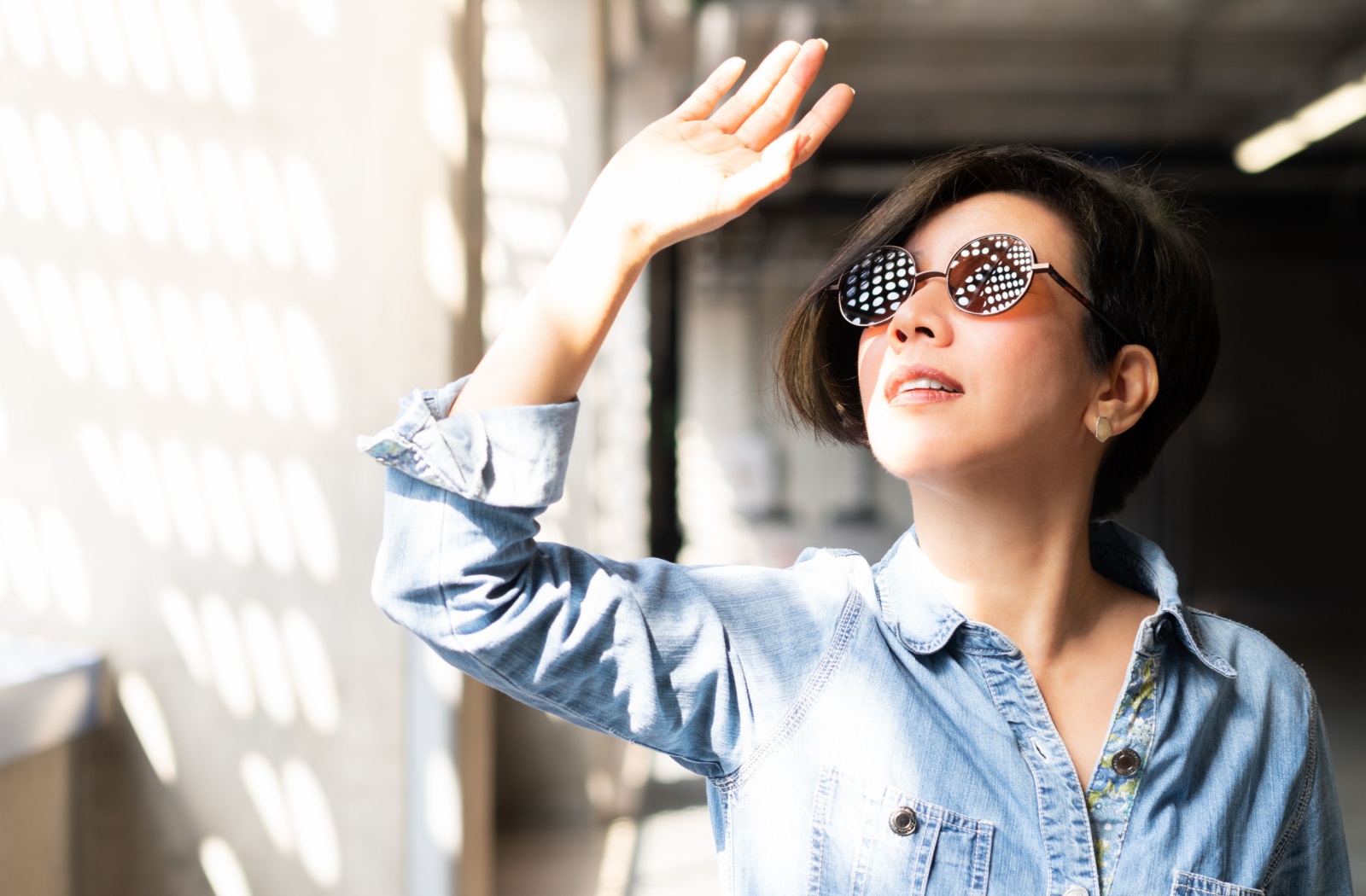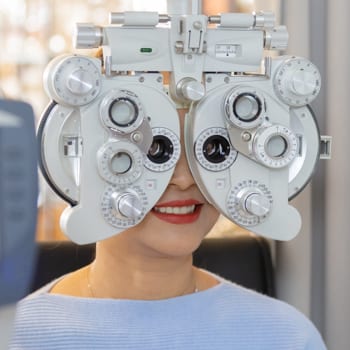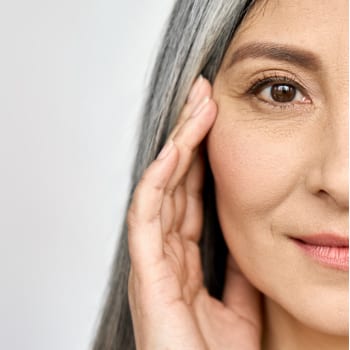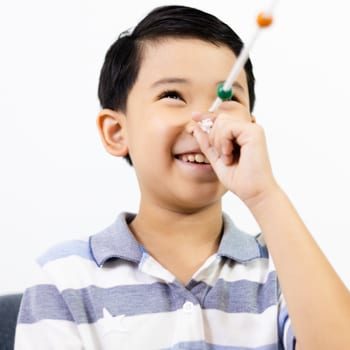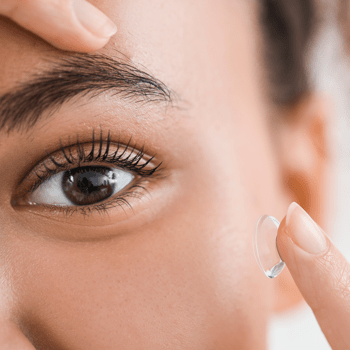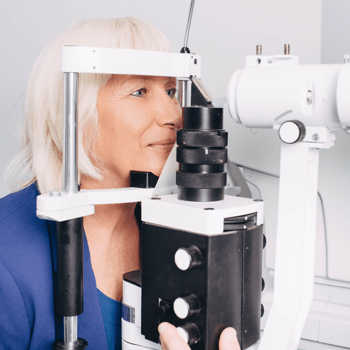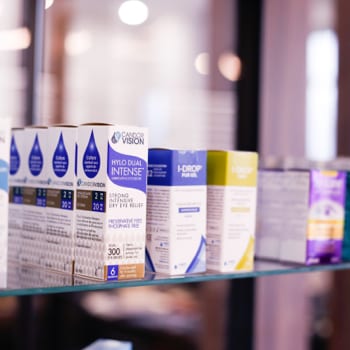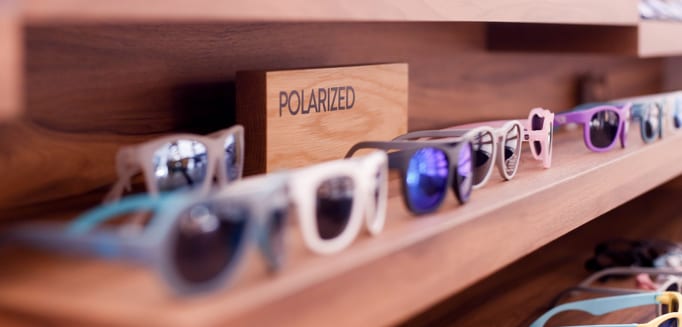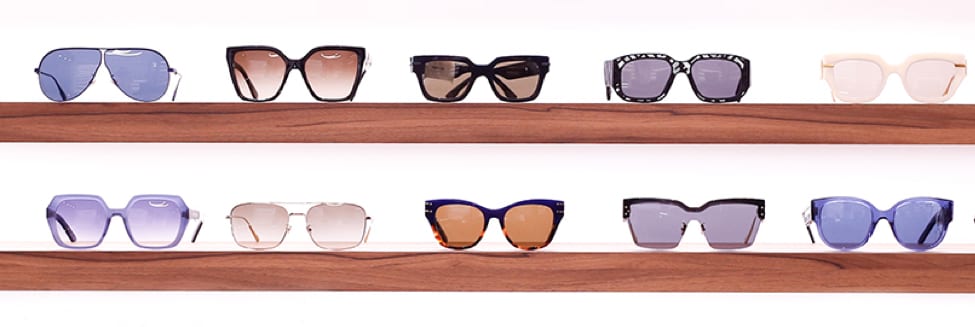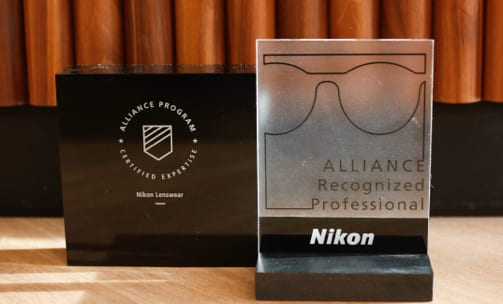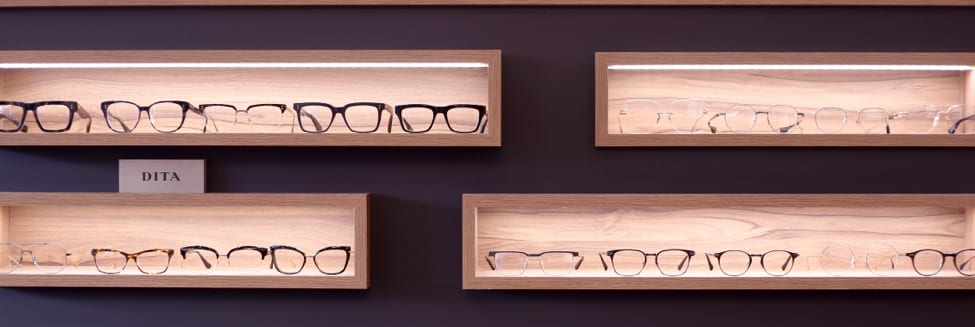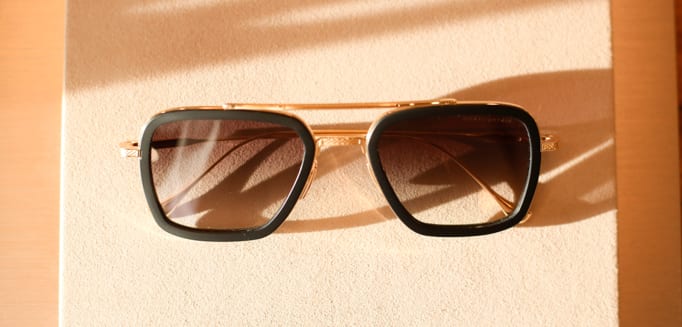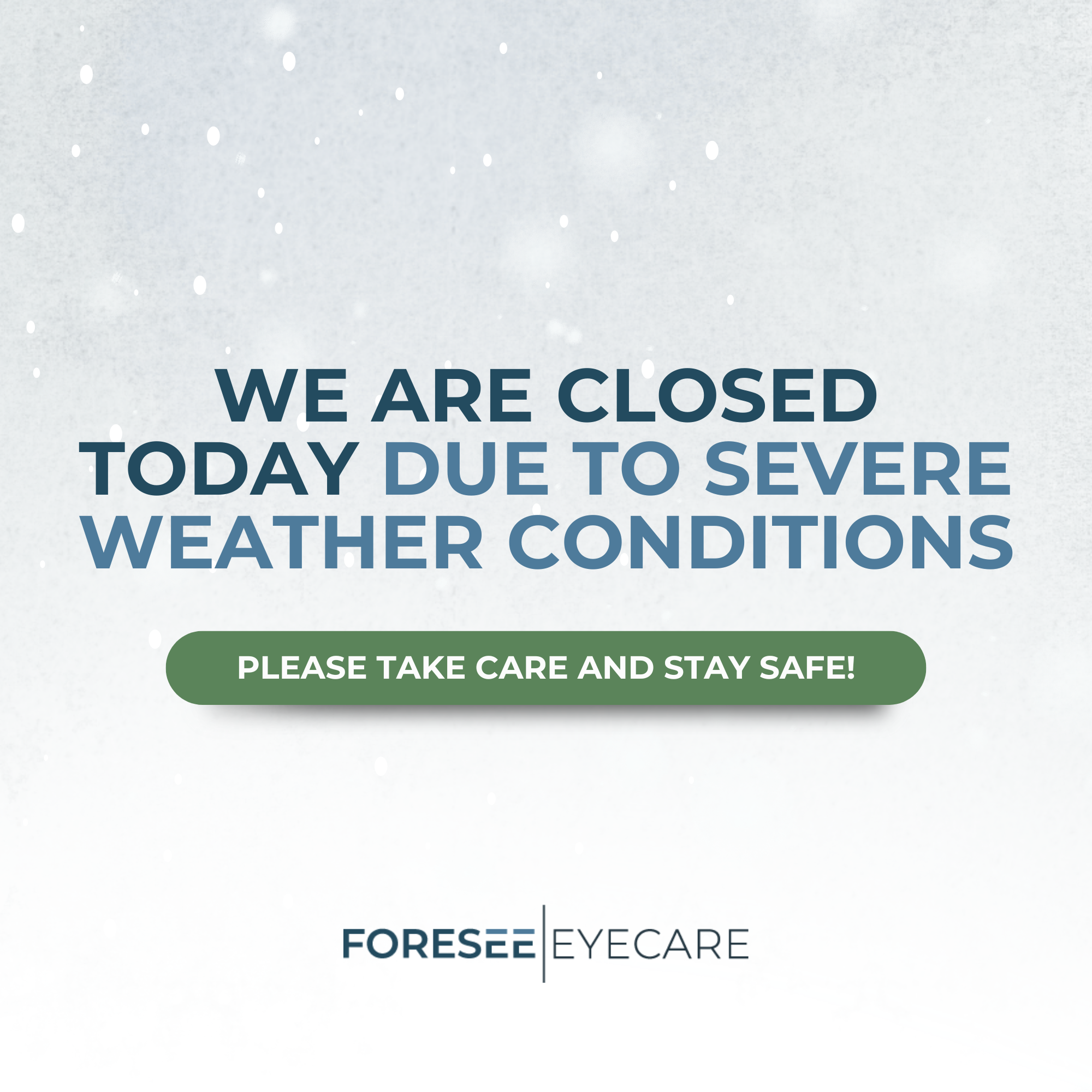Our eyes are precious, yet they are often overlooked when it comes to sun protection. While many diligently apply sunscreen and wear sunglasses, protecting our eyes from harmful UV rays isn’t always on our minds. But it should be.
Prolonged exposure to UV light can lead to short and long-term eye damage. Fortunately, our eyes can often recover from mild UV damage, but severe or chronic UV damage can make recovery much more difficult.
Your optometrist can help you manage UV eye damage and take proactive steps to prevent future damage.
How Does the Sun Affect Your Eyes?
Ultraviolet (UV) radiation can damage our eyes in more ways than one. Every outdoor setting has a unique UV environment that can present varying risks to our vision. By being aware of personal factors and your daily environments, you can take proactive steps to safeguard your vision.
Near Water
Water can reflect up to 80% of UV rays, whether you’re by the ocean or lounging at a lakeside retreat. This amplified exposure can cause photokeratitis (essentially a sunburn of the eye) or long-term damage to the cornea and lens.
On a Mountain
You’re closer to the sun when hiking or skiing at high altitudes; UV intensity increases by 10–12% for every 1,000 meters above sea level.
Snow can reflect up to 80% of UV rays, increasing the risk of eye damage. The infamous “snow blindness” (a form of photokeratitis) is a common ailment in these high-altitude conditions.
Urban Settings
City dwellers aren’t exempt from eye safety concerns. While urban environments present lower natural UV reflection, concrete and glass can still reflect UV rays, exposing eyes to scattered radiation.
Everyday exposure can add up over time, especially if you don’t wear UV-blocking sunglasses.
Artificial UV Light
Another consideration is artificial UV exposure. Common sources include tanning beds and certain industrial equipment, such as welding arcs. Although this type of exposure is often incidental, repeated incidents can cause damage similar to that caused by natural sunlight.
How to Know if Your Eyes Have UV Damage
Detecting UV damage isn’t always straightforward, as symptoms can range from mild to severe. It’s essential to pay attention to changes in vision or discomfort, particularly after extended time in the sun.
The effects of UV radiation on our eyes often accumulate over time, leading to wrinkles or cataracts later in life. However, you might experience acute or immediate UV damage as:
- Redness or irritation
- Sensitivity to light (photophobia)
- A gritty sensation in the eyes
- Excessive tearing
- Blurred vision
- Pain or discomfort, especially after intense sun exposure
- White or cloudy patches on the eyes (may indicate photokeratitis)
Mild UV Damage
Acute conditions such as photokeratitis are typically temporary, resolving in a few days with proper care. Symptoms include irritation or mild vision blurriness.
Severe or Chronic Damage
Chronic exposure to UV rays without protection can lead to severe, long-term conditions such as cataracts, pterygium (a growth on the eye’s surface), macular degeneration, and even cancer of the eye or surrounding skin.
If symptoms appear quickly following UV exposure, acting promptly is essential. Chronic damage may not display immediate symptoms, making routine eye check-ups critical.
Can Eyes Recover from UV Damage?
The good news is that our eyes are resilient. With the proper care, they can often recover from mild UV damage. However, some damage may be permanent if left untreated or sustained over time.
Treatment for UV Damage
Photokeratitis (sunburned eyes) can be mild or severe; however, mild cases often heal within 48 hours. Rest your eyes, stay indoors, and use artificial tears or cold compresses to relieve discomfort. Over-the-counter pain relievers may help with severe discomfort.
For more chronic or severe damage, see your eye doctor as soon as possible. Your eye doctor can prescribe or recommend treatment based on your condition and personal needs, such as:
- Glasses with special lenses
- Medicated eye drops or ointments to address irritation, swelling, or dryness
- Cataract surgery for UV-induced lens clouding
When to See an Eye Doctor
You should seek medical attention if:
- Symptoms persist for more than 48 hours
- You experience sharp pain or worsening light sensitivity
- You notice significant or sudden vision changes, especially in central vision
- You observe any unusual growth or visible damage to your eyes
Proactive care is crucial. A trusted eye care provider can evaluate the severity of the damage and recommend appropriate treatments to manage or reverse symptoms.
How to Protect Against Future Sun Damage
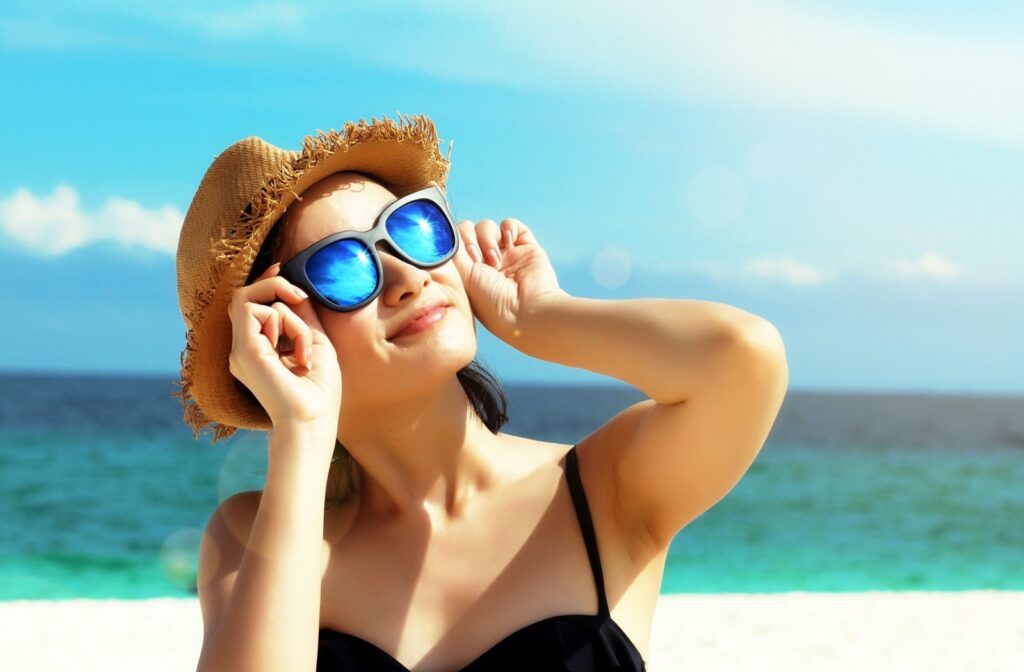
Protecting your eyes from harmful UV rays is just as important as using sunscreen for your skin. Here’s how to safeguard your vision for the long term:
- Wear high-quality sunglasses that block 100% of UVA and UVB rays. Not all sunglasses block UV light, so check your labels. Wraparound styles offer additional protection by minimizing light exposure from the sides.
- Use a wide-brimmed hat outdoors to reduce the amount of UV rays reaching your eyes and face.
- Limit prolonged sun exposure to direct sunlight, especially during midday hours (11 AM to 3 PM), when UV rays are most intense.
- Choose protective gear for special conditions; wear the appropriate protective eyewear whether you’re skiing, mountaineering, welding, or working with artificial UV light.
- Educate kids about UV protection, as their eyes are more sunlight-sensitive, and most of your lifetime exposure happens before you turn 18.
- Make eye exams routine, even if you don’t notice any symptoms. An eye doctor can catch signs of damage early and help you manage potential risks.
Take the Next Steps for Eye Health
Your eyes are one of your most valuable assets, and protecting your vision now can have a long-term impact. While it’s reassuring to know they can often recover from mild UV damage, prevention is always the best strategy.
At Foresee Eyecare, we know that taking simple, consistent protective measures helps your vision remain clear and healthy for years. Contact us today if you’re concerned about your eye health or want personalized advice about UV protection.

